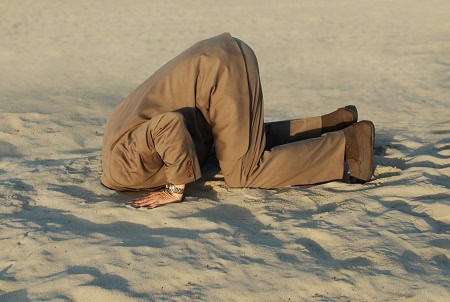Avoidance is Addiction’s Best Friend
by Thaddeus Camlin, Psy.D.
Avoidance and Fear
 Nothing feeds fear like avoidance. Substance use itself often becomes problematic because it is such an effective method of short-term avoidance. Eventually, the repetition compulsion of avoidance builds up so much unaddressed residual byproduct that the costs of continued avoidance outweigh the potential costs of facing what we fear. The fulcrum of change and fear is the birthplace of courage. Ultimately, whether it relates to addiction, career, love, health, anything that matters, fear keeps us stuck and change comes from honest confrontation with ourselves.
Nothing feeds fear like avoidance. Substance use itself often becomes problematic because it is such an effective method of short-term avoidance. Eventually, the repetition compulsion of avoidance builds up so much unaddressed residual byproduct that the costs of continued avoidance outweigh the potential costs of facing what we fear. The fulcrum of change and fear is the birthplace of courage. Ultimately, whether it relates to addiction, career, love, health, anything that matters, fear keeps us stuck and change comes from honest confrontation with ourselves.
You may also be interested in: We Can’t Feel Safe All the Time
Growth and change result from identifying and breaking patterns. In order to identify and break our own patterns we must continuously return to honest self-reflection. Knee-jerk responses are often a product of our ego’s sophisticated system of defenses. We are creatures of conditioning. Our environment provides feedback and we prune away actions that result in feeling overwhelmed, embarrassed, ridiculed, incompetent, unwanted, unsafe. We find what works and we stick with it.
Over time we tend to get a bit carried away with our pruning. What once was a thriving, burgeoning, youthfully exuberant bloom singing out in all directions too often becomes a withered, barren, bristled shrub with the least amount of exposed foliage possible to sustain life. The very patterns we develop to keep us safe and help us feel calm and confident turn into the shackles of self-confinement. We become creatures of habit. Therefore, in the words of James Hollis, what we have become is now the chief obstacle.
Experts of Avoidance
Most of us become experts in the avoidance of fear. One could even make a solid argument that whatever our routine is – drinking at home alone, performing in front of thousands of people, jumping out of airplanes, fixing cars, publishing scientific research, any routine – our routines are in place to avoid what we fear. Avoidance is an effective technique early in recovery efforts, but ultimately avoidance rots confidence and empowerment. There is no better way to tell ourselves we can’t handle something than to avoid it altogether. To grow then is to concretely identify fears and move towards them because fear is only healthy when armed with the courage to face it.
